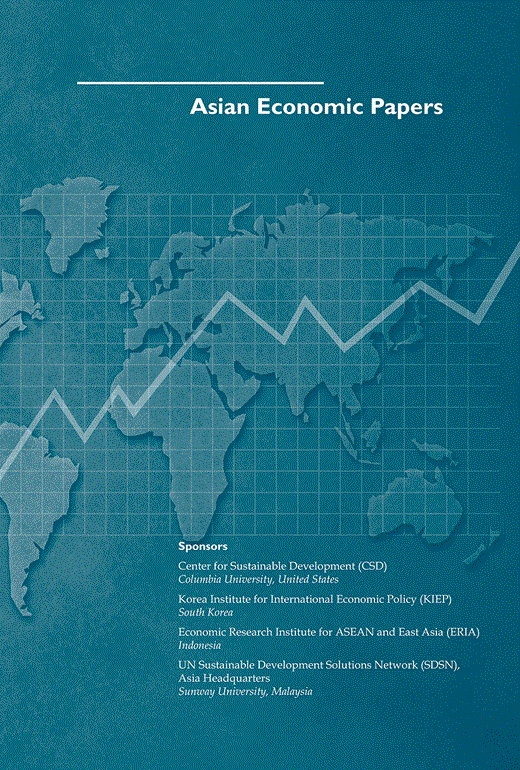中等收入陷阱2.0:人力资本在自动化时代日益重要的作用及其对亚洲发展中国家的影响
IF 5.3
3区 经济学
Q1 ECONOMICS
引用次数: 0
摘要
本文通过概念化合适的人力资本年龄短可能导致增长放缓的机制,并通过将亚洲新兴经济体与各种相关指数进行比较,阐述了在最近自动化加速的情况下,新兴经济体人力资本积累的重要性。在最近的新型工业化浪潮下,该论文将所谓的中等收入陷阱论点重新定义为其新版本(MIT 2.0),重点关注不断变化的就业环境与高技能人力资本积累速度不足之间日益扩大的差距。最近的自动化浪潮使亚洲国家很难通过传统的追赶和劳动密集型工业化战略来保持其高绩效。该论文称,尽管自动化通常会减少传统劳动力需求,但通过生产力的提高、进一步的资本积累以及自动化刺激的新任务的出现,将产生巨大的新劳动力需求。本文强调了加快信息通信技术人力资本积累的重要性。论文的部分指标是高技能职业的自动化二级和三级,ICT发展结论本文章由计算机程序翻译,如有差异,请以英文原文为准。
Comments on The Middle-Income Trap 2.0: The Increasing Role of Human Capital in the Age of Automation and Implications for Developing Asia
This paper addresses the importance of human capital accumulation in emerging economies under the recent accelerated automation, by conceptualizing the mechanism of possible growth slowdown caused by short-age of suitable human capital, and by comparing emerging Asian economies with various relevant indices. The paper redefines the so-called middle-income trap argument into its new version (MIT 2.0) under the recent wave of new industrialization, focusing on the increasing gap between changing employment circumstances and the insufficient speed of high-skilled human capital accumulation. The recent wave of automation makes it difficult for Asian countries to continue their high performance through the conventional catch-up and labor-intensive type industrialization strategy. Although automation will generally bring about a decrease in traditional labor demand, huge new labor demands will be created through productivity improvement, further capital accumulation, and the emergence of new tasks stimulated by the automation, according to the paper. The paper emphasizes the importance for accelerating human capital accumulation suitable for information and communi-cation technology (ICT). The part of paper indices automation secondary and tertiary of high-skilled occupation, ICT development conclusion
求助全文
通过发布文献求助,成功后即可免费获取论文全文。
去求助
来源期刊

Asian Economic Papers
ECONOMICS-
CiteScore
7.50
自引率
0.00%
发文量
16
期刊介绍:
The journal Asian Economic Papers (AEP) is supported by several prominent institutions, including the Center for Sustainable Development at Columbia University in the United States. This shows that there is a strong emphasis on sustainable development within the journal's scope. Additionally, the Korea Institute for International Economic Policy in South Korea, the UN Sustainable Development Solutions Network (SDSN) in Malaysia, and the Economic Research Institute for ASEAN and East Asia in Indonesia also sponsor AEP. The articles published in AEP focus on conducting thorough and rigorous analyses of significant economic issues pertaining to specific Asian economies or the broader Asian region. The aim is to gain a deeper understanding of these issues and provide innovative solutions. By offering creative solutions to economic challenges, AEP contributes to the discourse and policymaking that impact the Asian economies and region as a whole.
 求助内容:
求助内容: 应助结果提醒方式:
应助结果提醒方式:


